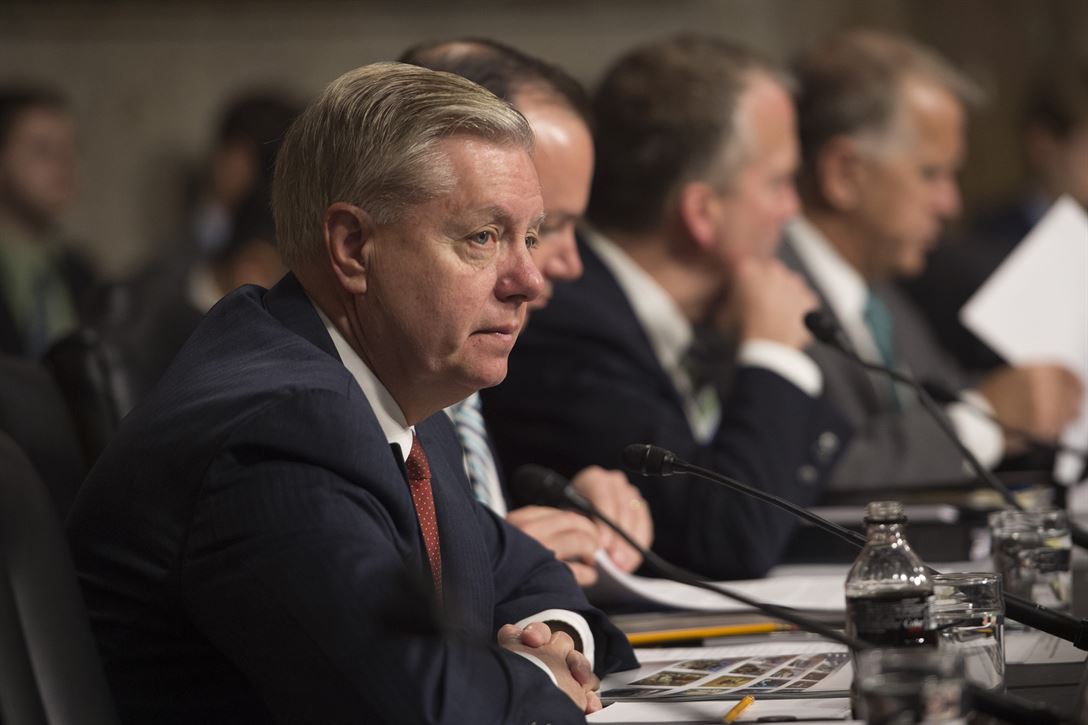Senator Lindsey Graham (R-SC), a prominent staunch conservative, expressed some support for bringing back federal parole at a November 19 hearing of the Senate Judiciary Committee that he chairs.
About 15 minutes into the hearing, which mainly focused on Jeffrey Epstein’s alleged suicide, Sen. Graham asked Federal Bureau of Prisons Director Kathleen Sawyer, “Do you have any recommendations as to whether we should look at reinstituting parole at the federal level?”
Federal parole was abolished in 1984 as part of the annual budget bill. Sawyer explained how, when parole existed, imprisoned people “wanted to get involved in programs and do positive things” because of tangible incentives.
When Graham asked whether she would recommend reinstating parole, Sawyer said she “would be happy” to take a more comprehensive look at the question.
He responded: “If you could let me know, I think that is something we should look at.”
This caused a stir among criminal justice reform advocates. Kevin Ring, president of Families Against Mandatory Minimums (FAMM), responded in a tweet, “Secret is out: Chairman Lindsey Graham is interested in bringing back federal parole.”
Ames Grawert, senior counsel of the Justice Program at NYU Law’s Brennan Center for Justice, told Filter that “it’s an exciting possibility and—while not something we’ve studied directly—could offer a real possibility for continued bipartisan cooperation.”
Reinstating federal parole would almost certainly provide relief, for example, to a large number of people unjustly incarcerated for decades—and sometimes even life without parole—for nonviolent drug-law violations. Powerful advocates like Amy Povah and Anrica Caldwell of CAN-DO Clemency have been fighting for clemency for this population for many years, even while large sectors of the criminal justice reform world have recalibrated their focus to prosecutor elections and shortening sentences for other crimes.
Hearing Lindsey Graham vocalize his openness to parole so publicly should be particularly hopeful for reform advocates in the many conservative southern states that have abolished parole. Some of these states may additionally simply reestablish parole regardless of what Republicans in their state legislatures think.
In Virginia, for example, a number of powerful Republicans have been major opponents of reestablishing parole, which was abolished there in 1995. Delegate Rob Bell (R-Albemarle) is especially vocal about his opposition, and he currently chairs the Courts of Justice subcommittee in the House of Delegates, which has to approve criminal justice bills before they go to a vote.
But Democrats just took “unified control of state government for the first time since 1993,” meaning that there will be a Democratic Speaker of the House who will almost surely use his or her authority to replace Bell. (Virginia also just had a wave of prosecutors elected on progressive platforms, which makes reinstituting parole more tenable.)
The full Senate Judiciary Committee hearing can be watched here at C-SPAN.
Photo of Sen. Graham in 2016 via US Department of Defense.





Show Comments